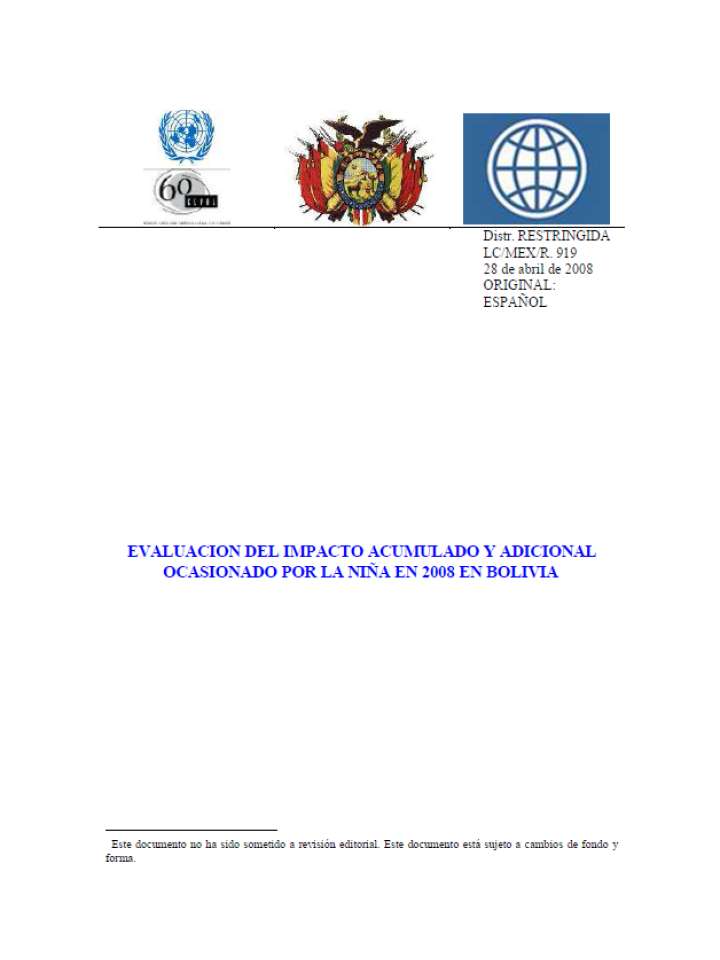Assessment of the impacts caused by la Niña in 2008 in Bolivia
El Niño/La Niña-Southern Oscillation, or ENSO, is a quasi-periodic climate pattern that occurs across the tropical Pacific Ocean on average every five years. ENSO causes extreme weather such as floods, droughts and other weather disturbances in many regions of the world. Between November 2007 and April 2008, Bolivia suffered heavy rains that caused floods. The most affected departments were La Paz, Cochabamba, Chuquisaca, Beni and Santa Cruz. As for April 22, 2008, 123,748 households were affected. In de departments of Beni, Oruro and Chuquisaca, the affected population represented more than 20% of the total population. The death toll is 74 people.
The Damage and Loss Assessment estimated total damage and losses in 511 million dollars, which represents 3.4% of Bolivia’s GDP. 33% of this total amount corresponds to damage and 67% to losses. The most affected sector was agriculture; including livestock, damage and losses in this sector reached 276.5 million dollars. The second worst-hit sector was transport infrastructure, mainly secondary and tertiary roads. The total impact on infrastructure was estimated in 108 million dollars.
Following the recommendations of the DaLA, the government of Bolivia has undertaken several actions to strengthen its disaster risk management strategy.
